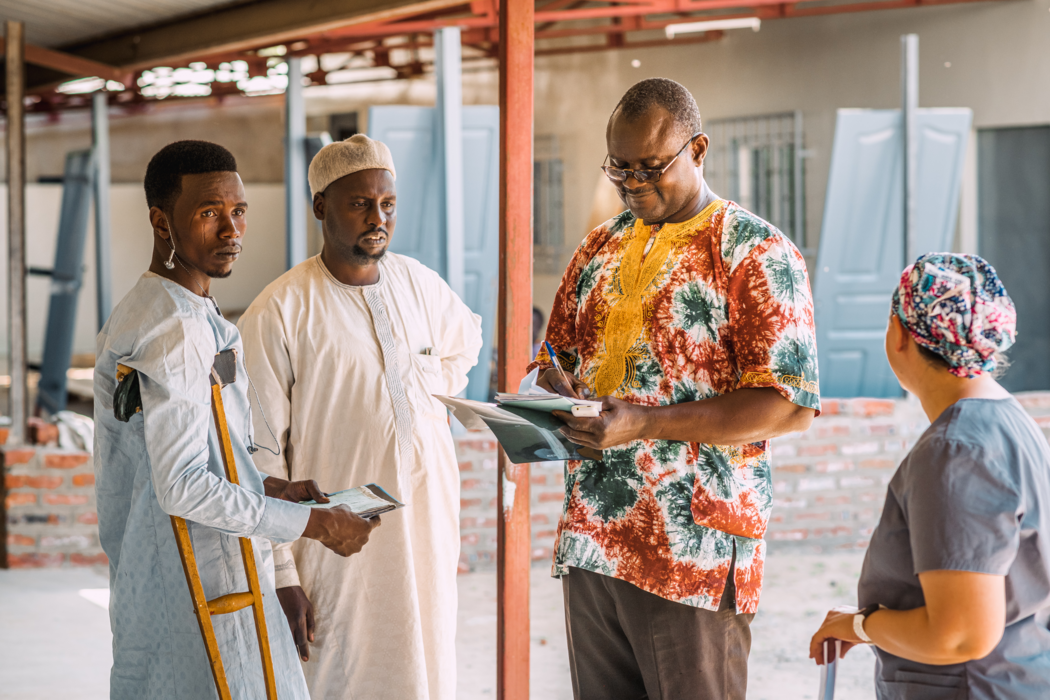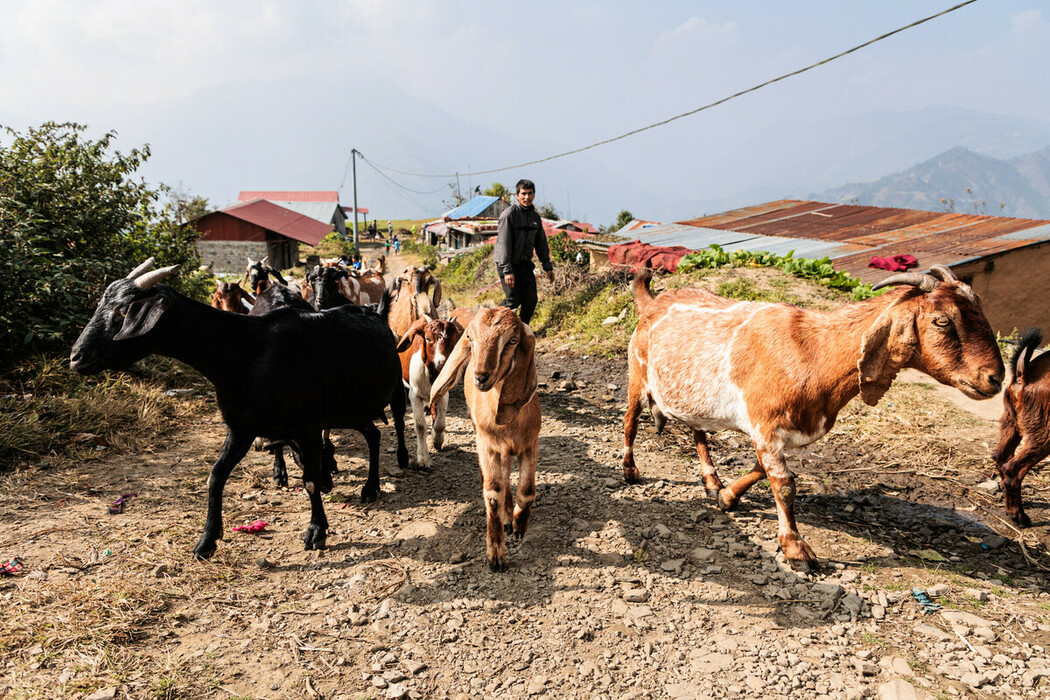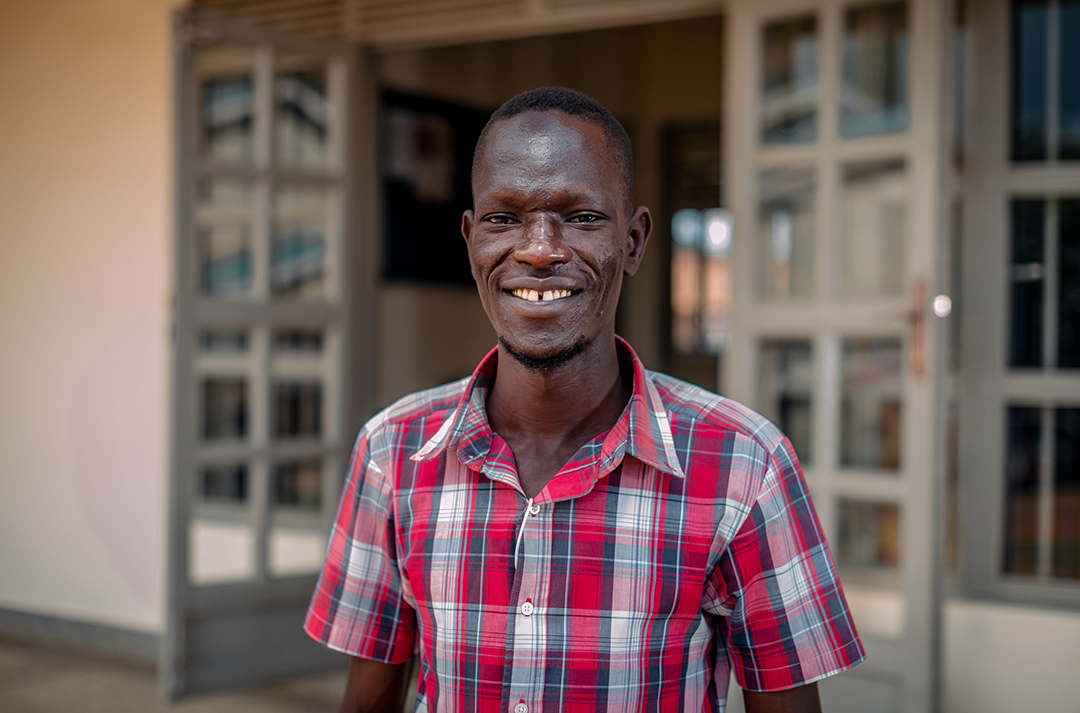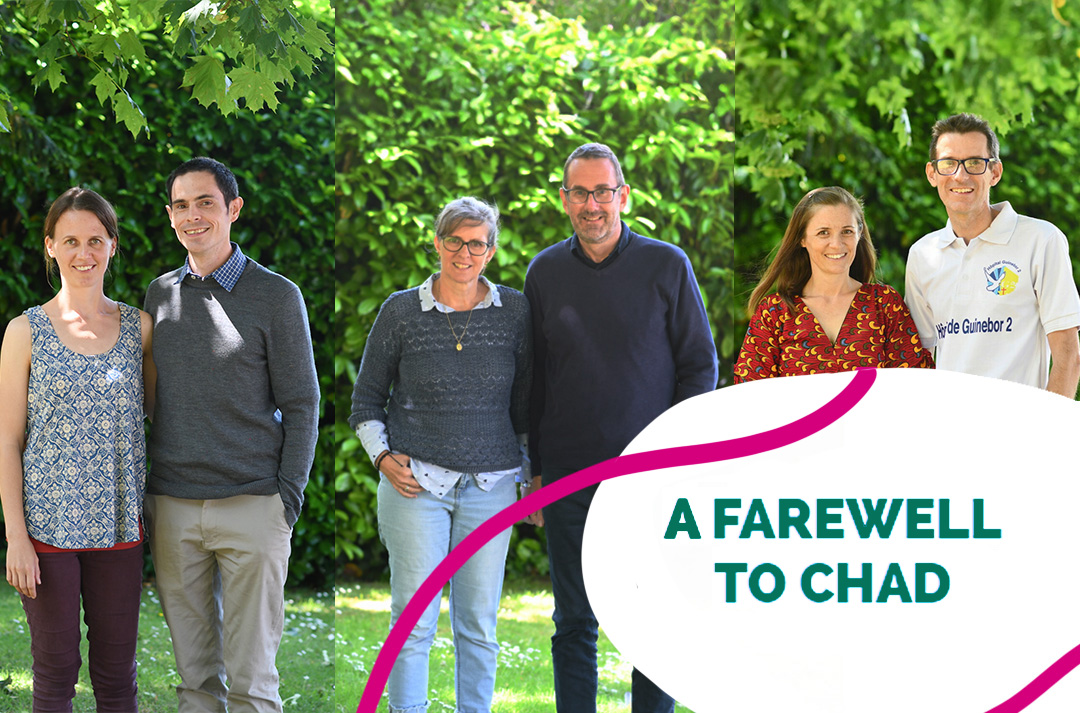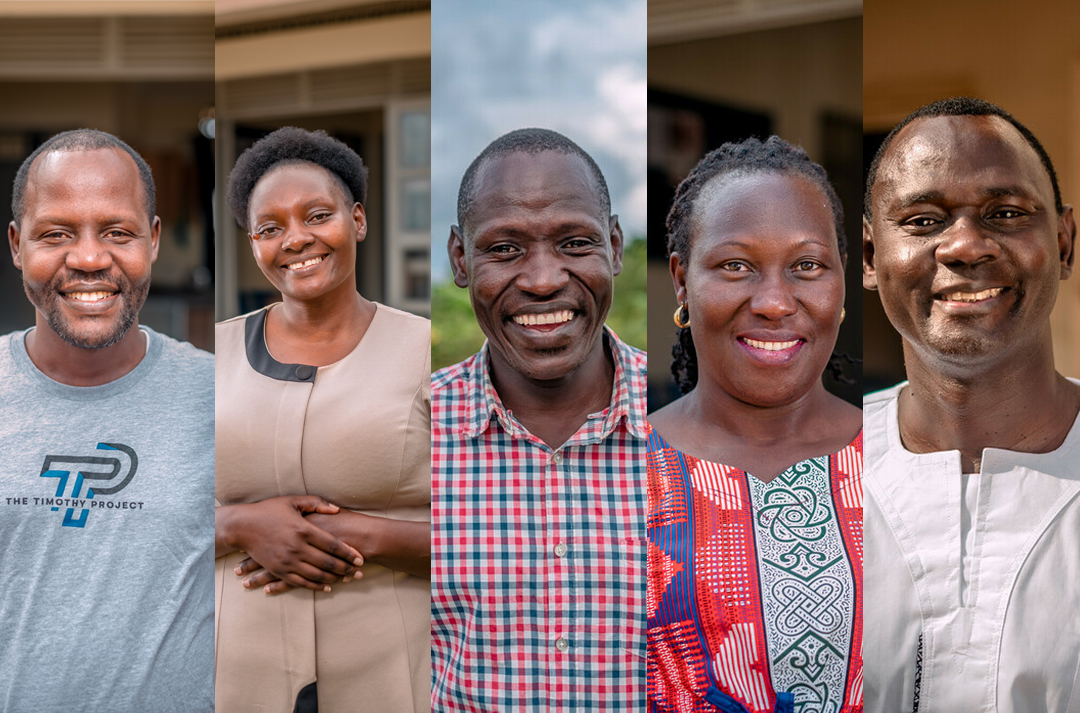Operation: Chad – one year on, revisited
You’re bringing hope to people with a deadly ‘orphan’ disease
After hearing from public health worker Mel Spears in Operation: Chad, one year on, we’re talking to her husband Tom about revelatory diagnoses, lives saved, and what being in Chad has taught them both.
Pulling back the curtain on ‘goldminer’s syndrome’
Leishmaniasis. If you’ve heard of it, it may well be because you picked up Issue 50 of Engage magazine. If you haven’t, know that the amazing discovery of new treatments for this rare ‘orphan’ illness is one of our favourite stories from 2021. “I can add something to that story as well,” says Tom Spears, with a smile. He’s catching us up on all that’s been happening at Guinebor II (G2) hospital in Chad since the filming of last year’s Harvest appeal, Operation: Chad. And the next chapter in the incredible leishmaniasis story is just one of the ways that your support of medical work in Chad has made a difference this year.
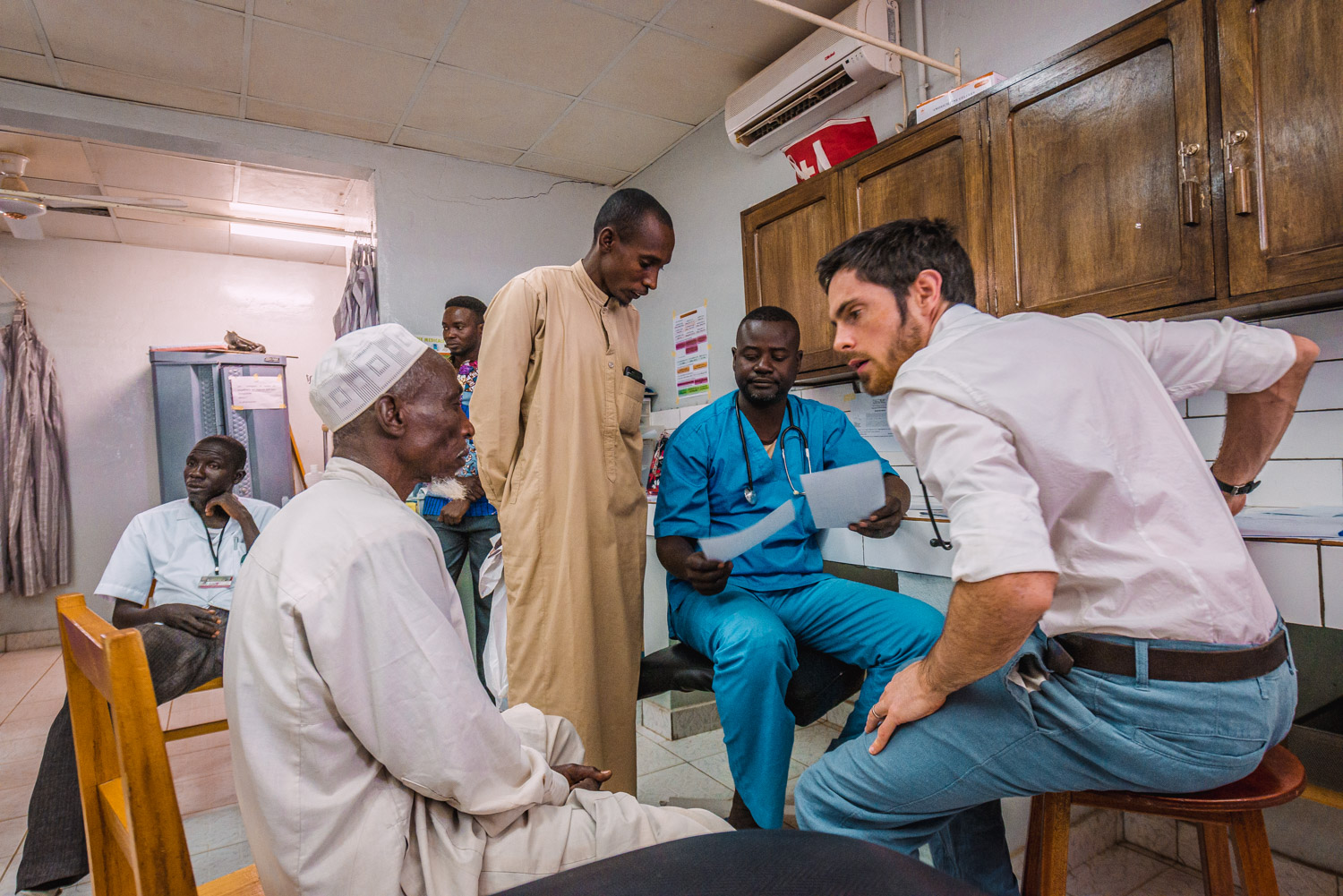
We left the leishmaniasis story with Andrea and Mark Hotchkin, BMS World Mission surgeons in the north of Chad. They had just discovered new ways to test, diagnose and treat leishmaniasis, with no idea that news of their work would make it to the Chadian Government, resulting in a proposed treatment roll-out across all affected areas in Chad. And it’s just another example of God in his wisdom drawing strands of BMS work together that Tom and his colleagues found themselves examining leishmaniasis patients at G2.
“The doctors I was with told me this was ‘goldminer’s syndrome’,” says Tom. “They’d been taught that this was a complication of toxic chemicals used in mining.” Though Tom had never seen leishmaniasis before, the collection of symptoms, as well as new tests now available because of Andrea and Mark’s work, told him they were looking at a parasitic disease. A quick phone call to Mark confirmed all they needed to know.
“The three doctors who were there now recognise leishmaniasis,” says Tom. “And they’ve all gone on to an area of Chad where it’s much more prevalent than in N’Djamena.” Leishmaniasis may sadly be here to stay, spread by the species of sandfly that transmits it, but doctors in Chad are now better armed. Thanks to your support, medics at G2 are diagnosing, testing and treating an illness that without medical intervention sees a near 100 per cent fatality rate in anyone without natural immunity.
- Leishmaniasis has been categorised as an ‘orphan illness’ – a disease restricted to the poorest parts of the world, and considered not financially lucrative to create up-to-date medications for.
- Visceral leishmaniasis (one form the disease can take) kills around 20 to 40,000 people in the world every year.
- Like malaria, it’s a parasitic disease, transmitted by a particular species of sandfly.
- Eight in ten people will be naturally inoculated against the disease, but visceral leishmaniasis attacks the internal organs of the 20 per cent who aren’t.
- Sufferers become anaemic, feverish and eventually immunodeficient. Without treatment, the disease will almost certainly prove fatal.
When training saves lives
Tom sent his three colleagues off with the promise that they could get in touch if they encountered leishmaniasis and needed extra tests. But it’s hard to see a cohort of doctors, just trained up, leaving G2. This past year has taught the team to turn what could be a frustration into a blessing. The fact that Chadian doctors rotate around the country means these health workers can take everything they’ve learned at G2 with them, wherever they’re sent. Tom recalls reading back of over the notes of a patient who had been left in the hands of a colleague he’d been training. “He’d done just a great job of treating him,” says Tom. “And I was seeing in front of me a patient who was dramatically better… it was really cool to think that he might not have been able to do that had he seen this patient a year ago.”
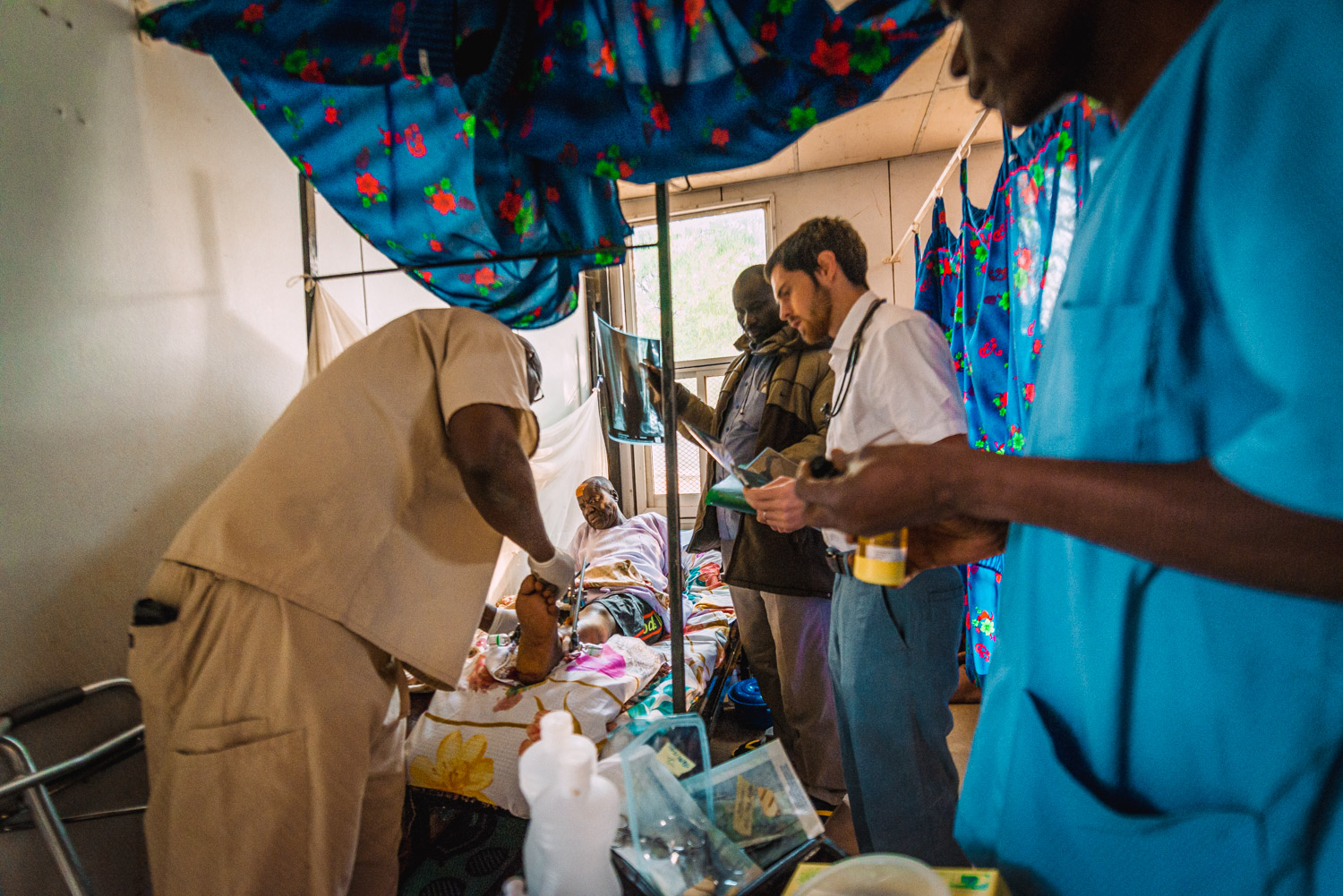
A year of reflection
While God might have planned for the Spears to end up in Chad, it had never been a country much on Mel and Tom’s radar. One year on – how has their sense of calling to Chad been sharpened? “One of the big things that I feel differently about now is that there [was lots] I felt frustrated by when we first arrived,” says Tom. “I don’t necessarily feel less frustrated now, but I have a lot more empathy for the complexity of the situation. It’s easy to come into a situation and see things that need to change and to criticise them, but with a bit more time, and perspective, you start understanding some of the reasons behind why things can’t change easily.” Mel and Tom’s heart for Chad is big enough to embrace the things that take time, that require prayer, and that are not straightforward. They’ve switched up a task-oriented culture for a relational one, and are building the connections that pave the way for change.
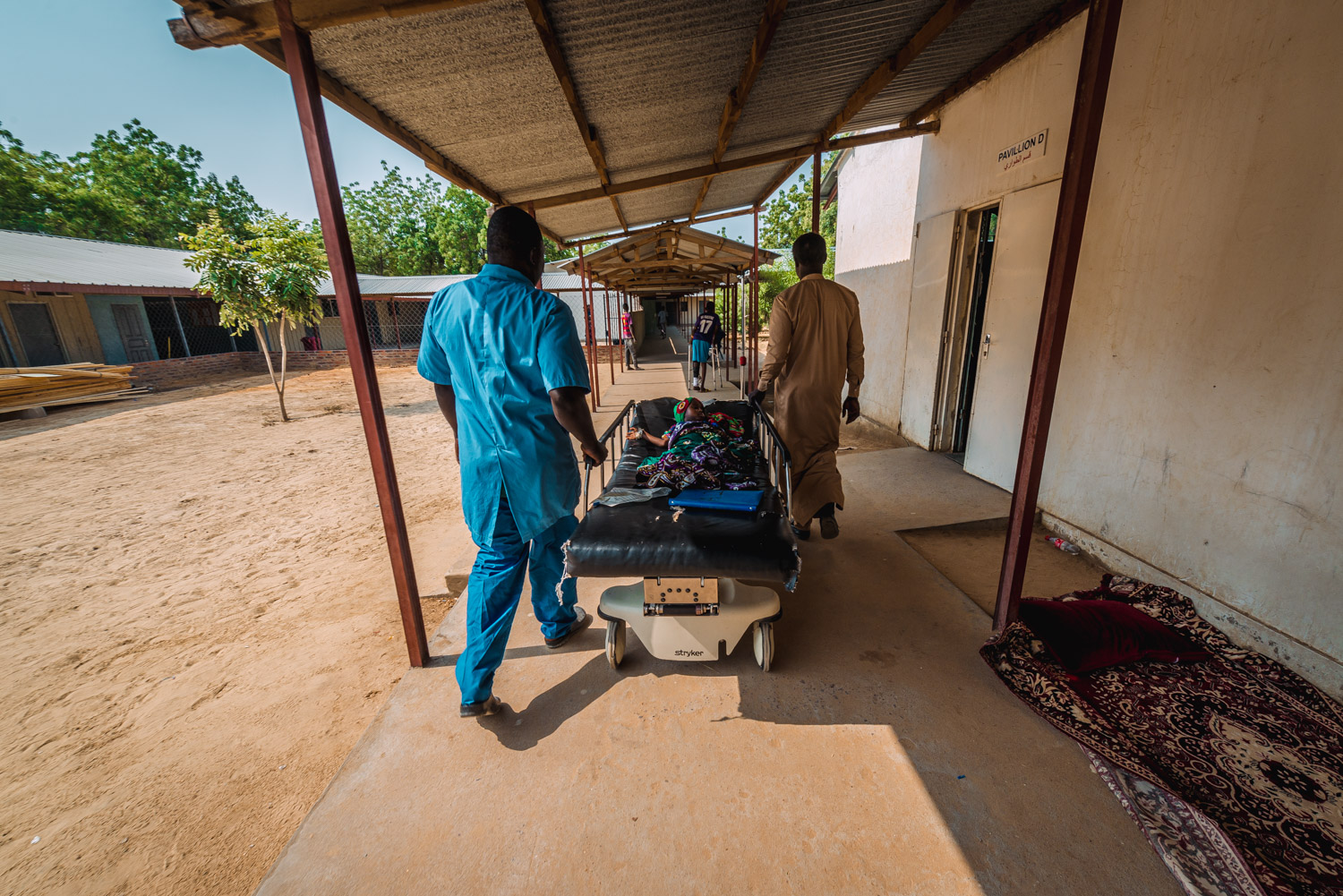
Looking back on how much has happened at G2 in the space of a year, it’s really exciting to think about how much scope there is for continued growth. But the team can only continue with your support and prayers. They’re praying for a surgeon to join Hospital Director Kalbassou Doubassou, and for enough capacity to make the heavy workload more sustainable at the hospital. They’re also praying that more manpower on the team would create time for training and learning. As they pray, why not pray along with them? Sign up to receive prayer letters from the Chad team, so that you’re always up to date with the latest from Mel, Tom and their colleagues at the hospital.

You raised an amazing £301,823 for Operation: Chad back in 2020, whether that was through coming together with your church family to hold a wonderful harvest service, or because you gave generously as an individual, inspired by the amazing healthcare work happening at G2. We’re so thankful for you all. If you missed the appeal, it’s not too late to give. Learn more about Operation: Chad right here.
Words by Hannah Watson
Editor of Engage, the BMS World Mission magazine

